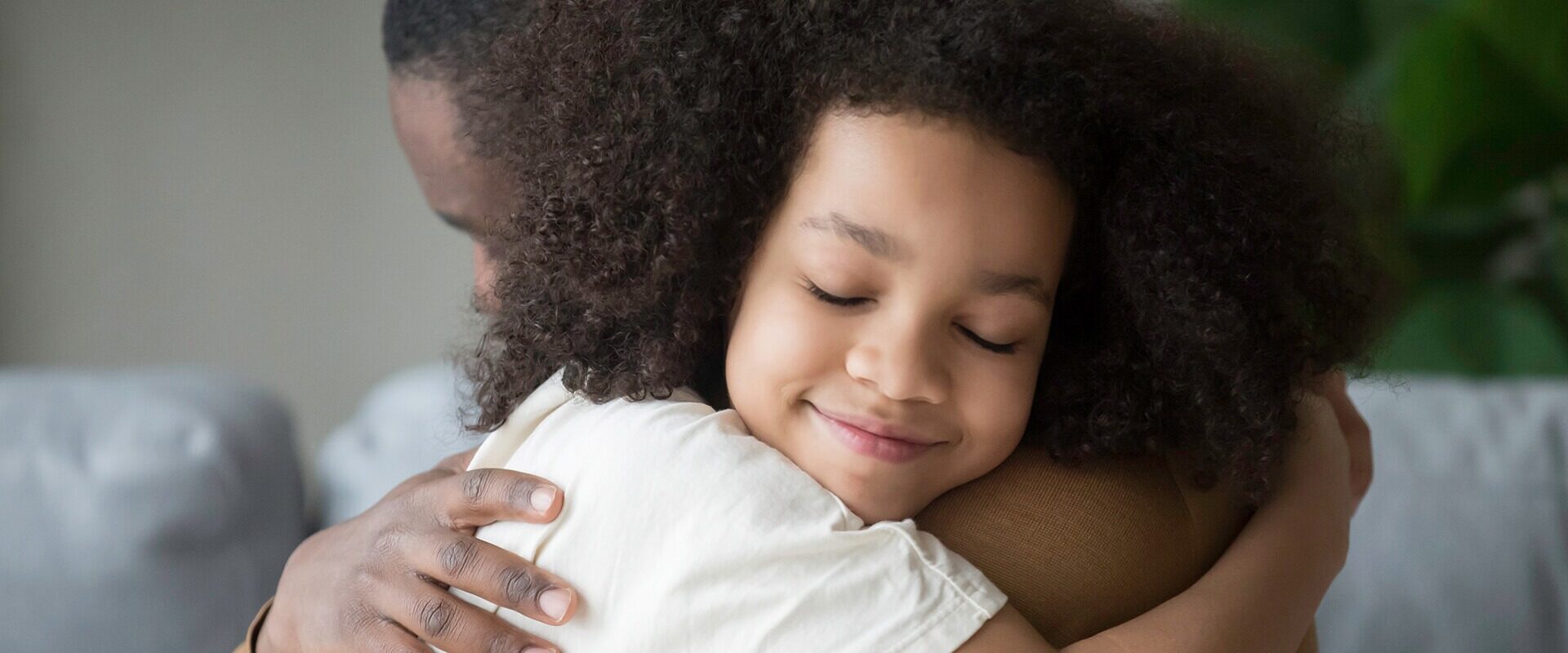Child custody disputes are often excessively lengthy and emotionally taxing. In most situations, both parents want what is best for their children, but they disagree on what that means.
No matter where in Virginia you live or have a child custody dispute, from Leesburg to Norfolk or anywhere else, these legal issues are bothersome. The Virginia child custody lawyers at Melone Hatley, P.C. have extensive experience in child custody matters and can help protect your children and your parental rights.
Child Custody Disputes

A Virginia family lawyer can empathize with the delicate and stressful nature of your child custody battle. In some cases, one parent might act selfishly, not thinking about what is in the best interest of the child but only about their interests or their desire to retaliate against the other parent. Those cases are heartbreaking because it is clear that the child is not at the forefront of any of the decisions.
Having an experienced Virginia child custody attorney in these situations is essential for you and your child. In many cases, the parents will agree on who should have primary physical custody of the children; but not all cases are as straightforward.
Virginia, like many states, encourages parents to create visitation agreements that keep both parents involved in their children’s lives. However, this does not mean that the courts will split time between parents 50/50.
However, if you believe you should have more time than your spouse, or the other parent, is willing to give you, or your child will be unhappy or unsafe with the other spouse, it may be worth contesting your custody and not signing an agreement. In your situation, there might be a strong reason for you to have more time with your child compared to your spouse.
In that case, you need a passionate child custody attorney to provide guidance and protect your rights during this difficult time. Melone Hatley, P.C. services Northern Virginia, Richmond, and Hampton Roads — and we are just as interested in protecting the best interests of your child as you are. We take the stress off you and your children by ensuring that the best interest of your child is being met.
How is Child Custody Determined in Virginia?
When spouses divorce, the issue of “who gets the kids” is often the most difficult and stressful one for both parents and children. In the Commonwealth of Virginia, the law does not favor either parent. Instead, Virginia Law considers the best interests of your child and looks at the relationship between each parent and each child. While others may seek custody (grandparents, aunts, uncles), there is always a presumption in favor of the natural parents.
If the parents are not married, Virginia considers any offspring the child of his or her mother. If the father wishes to assert rights to the child, paternity must be established by signing the birth certificate or having it admitted in court. There are several ways to establish paternity, and a father should consult a Virginia child custody attorney for guidance. Once paternity is established, neither party will be given a preference by the court solely on gender.
Virginia Child Custody
Lawyer Near Me
What Are the Different Types of Custody in Virginia?

Custody is separated into two parts: legal custody and physical custody. A parent with legal custody has the right to make plans and decisions for the child’s education, medical care, religious upbringing, discipline, and other matters concerning the child’s welfare.
A parent with physical custody has the child living with them the majority of the time. They make decisions about the child’s everyday needs.
Each additional form of custody stems from these two major categories.

Temporary Custody
Temporary custody refers to who the child is living with on a temporary basis. It is only in effect until the court establishes a permanent custody schedule. Temporary custody is generally established during a pendente lite or temporary custody and visitation hearing or by agreement of the parties.
Joint Legal Custody
Joint legal custody is when both parents have an equal right to make important decisions involving the child, including their health, education, and welfare.
Sole Legal Custody
This type of sole custody is where only one parent has the right to make decisions affecting the child’s health, education, and welfare. The other parent does not have a say in these important decisions.
Sole Physical Custody
Sole physical custody simply means that the child lives with just one parent. The other parent might still have visitation or legal custody, but the child will usually only live in one location with one parent.
Primary Physical Custody
Primary physical custody refers to which parent the child resides with the majority of the time.
Split Custody
Split custody arrangements are rare, and they involve one parent having custody of one child and the other parent having primary custody of another child. Some considerations for these arrangements are the child’s age and maturity and their expressed preference.
Shared Custody
Shared custody is an arrangement where the parties share time with the children more equally.
Shared custody arrangements can also be in the form of a nesting arrangement, or nesting agreement, where the children will stay in one home and the parents will alternate who is staying in the home with the children.
Before deciding custody, the court will consider the factors under Virginia Code Section 20-124.3, which is frequently called the “best interests of the child” standard.
How Do Virginia Courts Determine the Custody of the Child?

Parents can create their own custody arrangements before bringing the issue to a court. Frequently parents are unable to agree on custody. In those situations, a court will decide custody based on what it views as the best interest of the child. You need an empathetic child custody lawyer in Virginia by your side to navigate the legal processes involved in family law.
The court will hold a hearing to decide this issue and ask each parent to present their facts and arguments. Then, the court will issue a court order for custody and visitation based on the best interests of the child. To make this determination based on Virginia child custody laws, the court will consider the following factors in its decision-making process.
- The age and physical and mental condition of the child, with consideration to the child’s changing developmental needs;
- The age and physical and mental condition of each parent;
- The relationship existing between each parent and each child, while considering the positive involvement with the child’s life, the ability to accurately assess and meet the emotional, intellectual, and physical needs of the child;
- The needs of the child, giving due consideration to other important relationships of the child, including but not limited to siblings, peers, and extended family members;
- The role each parent has played (and will play in the future) in raising and caring for the child;
- The propensity of each parent to actively support the child’s contact and relationship with the other parent, including whether a parent has unreasonably denied the other parent access to or visitation with the child;
- The relative willingness and demonstrated ability of each parent to maintain a close and continuing relationship with the child, and the ability of each parent to cooperate in and resolve disputes regarding matters affecting the child;
- The reasonable preferences of the child, if the court deems the child to be of reasonable intelligence, understanding, age, and experience to express such a preference;
- Any history of domestic abuse, child abuse, or acts of violence (if the court finds any history of violence, the court may be able to ignore whether one parent supports the child seeing the other parent); and
- Such other factors as the court deems necessary and proper to the determination.
When Do You Need a Guardian Ad Litem?
A guardian ad litem (GAL) is an advocate assigned to the case by the court. This person is supposed to represent the interests of the children involved. A GAL is not assigned to every case, but they might be asked to be involved when there are concerns about abuse, neglect, or overly contentious cases. They might also be involved where there is a concern that the parents (or at least one parent) do not have the child’s best interests in mind.
Ultimately, a guardian ad litem can provide an impartial recommendation about what is best for the children, often after conducting interviews and investigating the situation as a whole.
How Long After a Divorce Does It Take to Receive Child Support?
You can always file for temporary child support, through a pendente lite hearing during the divorce proceedings. This allows you to receive support to maintain your child’s education, clothing, shelter, health care, and standard of living during the divorce proceedings. After the divorce, the judge can award permanent child support based on several factors.
Alternately, it may be beneficial to seek child support in the juvenile and domestic relations district (“JDR”) court prior to filing the complaint for divorce. In these situations, the parties may be separated but not yet ready to file the divorce. The JDR court will allow the custodial parent to seek child support prior the divorce being filed.
Is It Possible For My Spouse to Pay Alimony/Spousal Support and Child Support in Virginia?
Alimony, or spousal support, is completely separate from child support, so yes, it is possible for your spouse to pay both. It is important to note that any ruling for alimony will take place prior to the child support ruling, and any money granted for spousal support will be calculated in the overall child support determination.
How is Visitation Determined in Virginia?
Visitation defines when each parent will spend physical time with the child. The court will again consider the factors set out above before deciding on visitation. Each visitation schedule can vary drastically and will also depend on the parents’ work schedules, the distance between the parties, and the child’s school schedule.
If the parties live close to one another and the school schedule allows, the court may order a true 50/50 shared custodial schedule. This can range from a week-on-week off visitation schedule, or something more like a 2-2-3, where the parties alternate parenting time during the week and exchange weekends.
Visitation rights are not limited solely to the other parent. Additionally, grandparents, step-parents, and other close relatives may be awarded visitation rights.
The court has the power to deny visitation. Normally, the court will only stop visitation for a specific period or until a certain task is performed. For example, the court has previously denied visitation until the parent entered and completed a substance abuse program. The court may deny visitation if it is proven that the non-custodial parent is dangerous or has put the child at risk.
I Fear For My Child’s Safety. How Do I Get an Emergency Custody Order?
In Virginia, you can receive an emergency custody order from a judge if a significant party involved with the child fears for the child’s safety. This means if an important figure in the child’s life has reason to believe that the child is the victim of, or is in danger of becoming the victim of, domestic violence, abuse, or any other sort of trouble, they can request an emergency custody order from a family court judge.
In some cases, you may want to seek emergency child custody where the child has been abandoned or left in the state by one parent.
Should I Update My Estate Plan After Receiving Custody of My Child?
A divorce in Virginia nullifies your spouse as the executor of any estate planning documents you have, whether it is a last will and testament, a trust, or any other such document. Because of this, it is vital that you update your estate planning documents after your divorce is finalized.
Further, if you pass away after you are divorce but while your child is still under 18, the other parent, your ex-spouse, will be in charge of your estate as far as the children are concerned. Having an updated trust in place can ensure this does not happen.
Why Choose Melone Hatley?
You cannot choose just any Virginia child custody attorney when you have legal concerns involving your family. Melone Hatley, P.C. has some key attributes that will be extremely valuable as you work through the child custody process.
- Experienced, aggressive, and caring child custody lawyers. Child custody matters are often highly charged issues. Both parties experience intense emotions, which can make progress difficult. Our team is experienced in mediating these issues and knows how to lend a caring ear. We can be as aggressive as necessary to help you get the results that will be the best solution for you and your family.
- Highly rated by clients. Our clients love the efficient, thorough legal services we provide. We pride ourselves on providing practical, realistic legal advice that you can use immediately. This is what has made us top-rated attorneys in Virginia.
- Big law firm experience in a boutique setting. Experience matters in a child custody attorney. Our team has the experience and resources you need for the personal relationship you want in this difficult situation. We are aggressive when we need to be, but understand the value of trying to work together towards a mediated agreement.
- Client-focused approach with one-on-one attention. Going through a family law matter is never easy, and we understand that every situation is unique. Our approach focuses on you, your needs, and your goals — nothing else.
- Individualized approach. We are not aggressive for the sake of being aggressive. Instead, we try to get the best results in the most efficient way possible — saving our clients time and money.
- Law offices in Fairfax, Virginia Beach, Hampton Roads, Loudoun, and Richmond. We have convenient locations, so it is easy for our clients to access us for appointments.
Concerned for the Safety of Your Child?
Divorce is one of the most painful things a family can endure, especially when it comes to your parental rights and caring for your child. At Melone Hatley, we pride ourselves on our compassionate and caring attorney-client relationships that help our clients manage the process as smoothly as possible.
We are here to be an ally when you need it and to help you through this difficult time. If you need a child custody lawyer in Virginia, call us today or fill out our online contact form for a free consultation.


 (757) 296-0580
(757) 296-0580
























